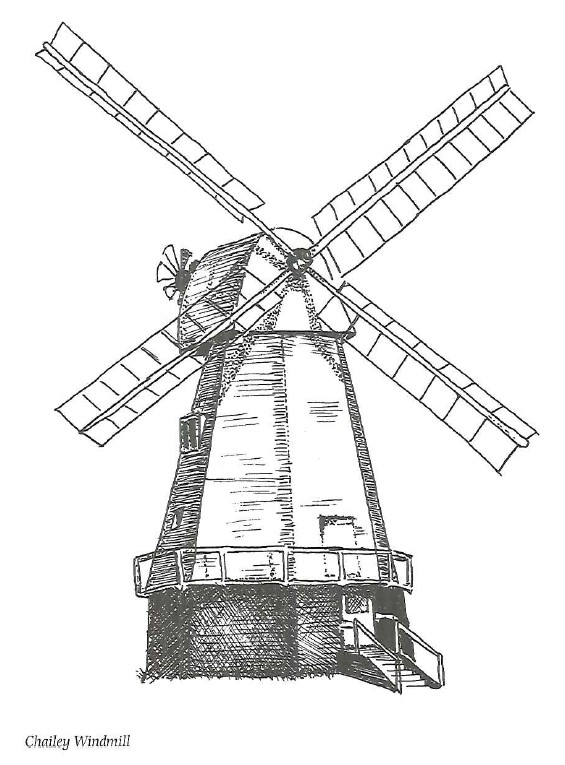George Gutsell, one-time landlord of The Queen’s Head, must have liked his pub a lot … not even death could keep him away.
A popular host at the old inn, when he died at the end of the 19th century his customers gave him a rousing send-off. His coffin was brought into the pub and everyone drank his health (which seems a bit ironic). But George was reluctant to leave. His ghost was often seen sitting in his favourite chair dressed in waistcoat and shirtsleeves, the bearded old timer looking as solid as the earthly drinkers.
The comfy chair is still kept ready for him, with sometimes a glass of whisky on the table beside it to add encouragement, but George’s visits are now rare.
The village started life as a ham or water meadow belonging to a South Saxon called Icel. It has been Icoleshamme, Ykelsham and Okeleshamme since then and the 1603 rendering as Isckleshom was how it was still being pronounced until recently.
Helping the needy is an enduring feature here. Today, there is the Five Villages Housing Association with sheltered flats for the elderly on land donated by farmer Dick Merricks in memory of his late son Jim. The association got its name because five villages were involved in raising money for the homes; Icklesham was supported by neighbours Fairlight, Pett, Three Oaks and Guestling.
In the past help came from the likes of widow Elizabeth Cheyney, who in 1710 left half an acre of land and two tenements for the use of two poor and aged unmarried men or women, and from the John Fray bequest of 1592. Unfortunately the money received from this is the same as four centuries ago, a considerable sum then but mere pennies now.
The game of darts is not usually associated with Women’s Institutes and even less so with elderly ladies. But Icklesham’s WI branch produced a darts queen in Ruby Mann, who was still a member of the team in her nineties. She switched from archery to darts when the bigger kind of arrows began to prove too much but lost none of her aim for the target. Her secret, said Ruby, was having a good eye for distance and never letting anything stronger than an orange juice get in the way of her concentration.
The village suffers rather through being on the main road from Hastings to Rye, but it can trace its roots back to AD 772 and the new town of Winchelsea, ordered by Edward I, was built within Icklesham parish which stretched down to the Rother’s mouth. Perhaps this link with the sea gave rise to the church being dedicated to St Nicholas, the patron saint of mariners. Workmen renovating the Norman tower of the building in 1975 uncovered part of the original Saxon church which dated the site back as far as the 10th century.
Another architectural asset is the old smock windmill on Hog’s Hill which found a new role in the last quarter of the 20th century as former Beatle Paul McCartney’s recording studio.
One good lady of Icklesham was either much maligned or had plenty of friends in low places. The rolls of the Hundred Court show in 1447: “That Alice Taillow is a common bawd, and she keeps a suspected house and receives suspected men, whereon the 12 jurors say she is not guilty’. Were the jurors themselves, perhaps, some of the ‘suspected men’ to return such a unanimous verdict of innocence?
This was one of the few villages recording evacuation plans in the event of the feared invasion of Napoleon; precise livestock records were made in 1798 and everyone was given exact instructions on where they were supposed to go. Captain Lamb of the Yeomanry and Provisional Cavalry in Sussex was to be in charge and his instructions included ‘Directions for making bread’ which involved boiling 20z of hops for an hour. Hopefully not while the French were storming up the beaches. In the churchyard are two epitaphs that linger in the mind:
“God takes the good – too good on earth to stay And leaves the bad – too bad to take away.”
And another on the tombstone of a village schoolmaster, who left a final, lasting message to his pupils:
“Little children, love one another.”
